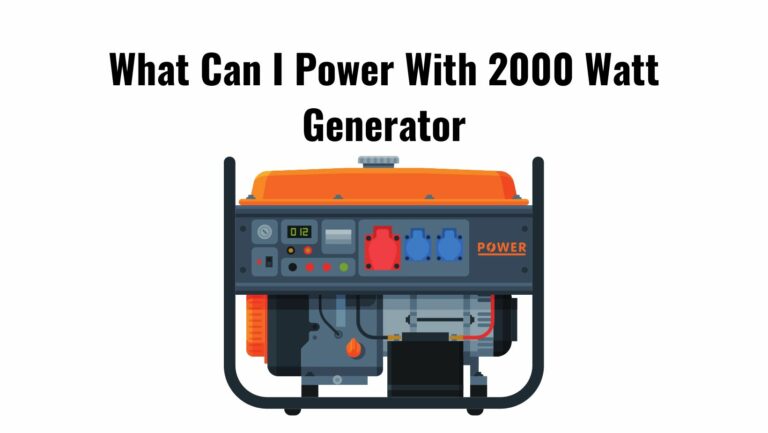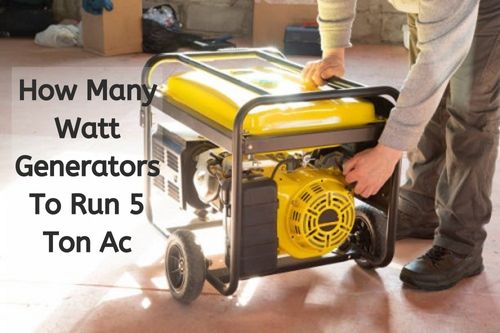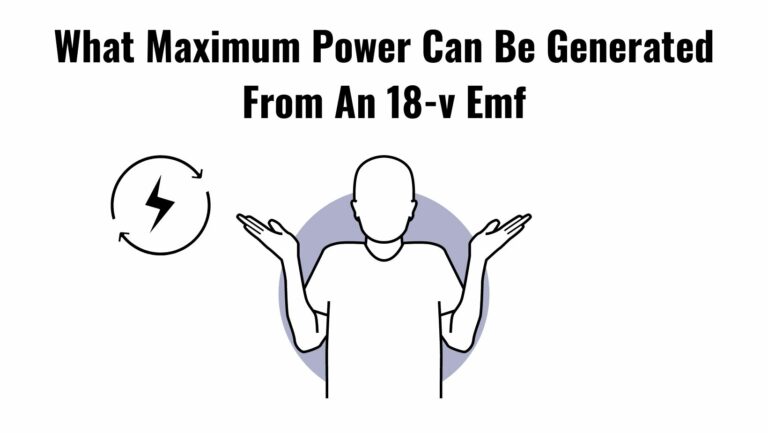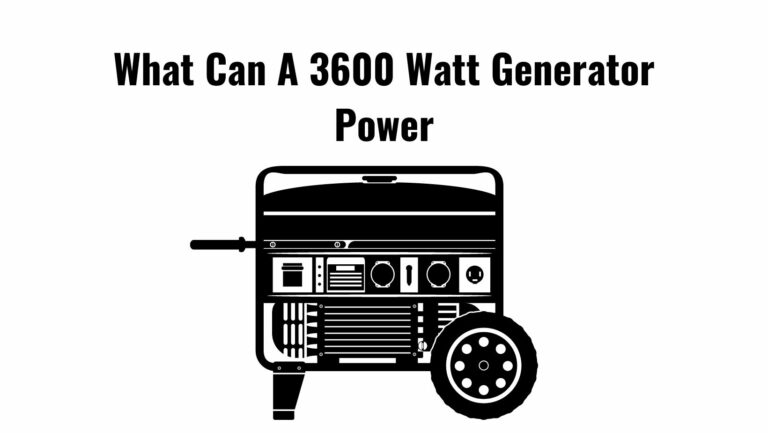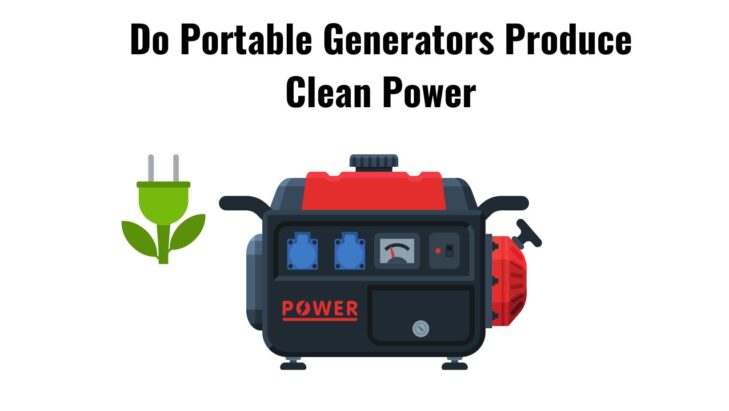
Are you in the market for a portable generator? If so, you may have heard the term “clean power” being thrown around and are wondering what it means. In this article, we’ll dive into the world of portable generators and discuss why clean power is so important.
A portable generator is a compact, portable device that generates electricity. They can come in handy in a variety of situations, such as camping trips, power outages, or job sites. But, not all portable generators are created equal, and it’s important to understand the type of power they produce.
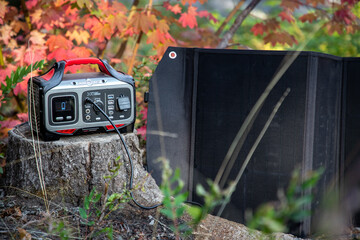
Clean power refers to electricity that is free from fluctuations and anomalies, making it safe for sensitive electronic devices like computers and televisions. On the other hand, generators that produce “dirty” power can cause harm to these devices, making it crucial to choose a generator that produces clean power.
In this article, we’ll explore the types of portable generators, the characteristics of clean and dirty power, and what to look for when choosing a generator to ensure you get the best quality power. Let’s get started!
Types of Portable Generators
1. Clean Sine Wave Generators
Clean sine wave generators produce electricity with minimal fluctuations and anomalies, making it similar to the power supplied by utility companies. This type of power is also known as “pure sine wave” or “clean sine wave” power, and it’s important to use with sensitive electronic devices because it won’t cause damage to these devices like dirty power can.
Clean sine wave generators use a more sophisticated design, including advanced electronics and inverters, to produce a smooth and stable flow of electricity. This makes them more expensive than other types of generators, but it also means that you can use them to power a wide range of devices without having to worry about damaging your electronics.
2. Dirty Power Generators
Dirty power generators, on the other hand, produce electricity that is characterized by fluctuations, harmonics, and other anomalies. This type of power is not suitable for sensitive electronic devices like computers, televisions, and audio systems. Dirty power can cause harm to these devices, shortening their lifespan or even rendering them useless. Dirty power generators are often less expensive than clean sine wave generators, but they can end up costing you more in the long run if you end up damaging your electronics.
Do Portable Generators Produce Clean Power?
It depends on the type of portable generator you choose. Some portable generators produce clean power, which is safe for sensitive electronic devices, while others produce dirty power, which can cause harm to these devices. Clean power is characterized by minimal fluctuations in voltage and current and is similar to the power supplied by utility companies. On the other hand, dirty power is characterized by significant fluctuations in voltage and current and can contain harmonics and other power anomalies.
Characteristics of Clean Power
1. Minimal Voltage and Current Fluctuations
Clean power has minimal fluctuations in voltage and current, which is crucial for protecting sensitive electronic devices. When the voltage and current fluctuate, it can cause harm to these devices, potentially shortening their lifespan or even rendering them useless. By using a clean power generator, you can ensure that the flow of electricity is consistent and stable, minimizing the risk of harm to your sensitive electronics.
2. Safe for Sensitive Electronic Devices
Clean power is safe for sensitive electronic devices because it provides a consistent and stable flow of electricity. These devices are designed to work with a consistent flow of electricity and fluctuations in voltage and current can cause harm to them. When you use a clean power generator, you can be sure that your sensitive electronics are protected from harm.
3. Similar to Power Supplied by Utility Companies
Clean power is similar to the power supplied by utility companies, with minimal fluctuations in voltage and current. This makes it ideal for use with a wide range of devices, including sensitive electronics. When you use a clean power generator, you can be sure that you’re getting power that is similar to the power supplied by utility companies. This makes it easier to use your generator with a variety of devices, without having to worry about compatibility issues or the risk of harm to your electronics.
Characteristics of Dirty Power
1. Voltage and Current Fluctuations
Dirty power is characterized by significant fluctuations in voltage and current. These fluctuations can be caused by a variety of factors, such as the type of generator being used, the load on the generator, and the quality of the generator’s components. The fluctuations in voltage and current can cause harm to sensitive electronic devices, which is why it’s important to be aware of the type of power you’re using.
2. Harmonics and Other Power Anomalies
Dirty power often contains harmonics and other power anomalies, which can be harmful to sensitive electronic devices. Harmonics are high-frequency electrical signals that can interfere with the normal operation of electronic devices, causing them to malfunction or become damaged. Other power anomalies, such as transients, can also cause harm to sensitive electronic devices.
3. Can Cause Damage to Sensitive Electronic Devices
Dirty power can cause damage to sensitive electronic devices, potentially shortening their lifespan or even rendering them useless. The fluctuations in voltage and current, as well as the presence of harmonics and other power anomalies, can cause harm to these devices, making it important to use clean power whenever possible.
Factors to Consider When Choosing a Portable Generator
1. Purpose of the Generator
The first factor to consider is the purpose of the generator. Are you using it for emergency backup power, for outdoor activities like camping or tailgating, or for work on a job site? The purpose of the generator will determine the size and type of generator you need, as well as the quality of power you require.
2. Types of Devices to be Powered
The second factor to consider is the types of devices you’ll be powering with the generator. Will you be using it to power sensitive electronics, such as laptops and smartphones, or will you be using it to power tools and appliances? If you’ll be using the generator to power sensitive electronics, it’s important to choose a generator that produces clean power, to protect your devices from harm.
3. Quality of Power Produced
The third factor to consider is the quality of the power produced by the generator. As we’ve discussed, there are two types of power that portable generators can produce: clean power and dirty power. Clean power is safe for sensitive electronics and is characterized by minimal fluctuations in voltage and current, while dirty power can cause harm to sensitive electronics. It’s important to choose a generator that produces the quality of power you need, depending on the types of devices you’ll be powering with it.
Final Thoughts
Choosing the right portable generator is crucial to ensuring that you get the quality of power that you need, especially if you’ll be using it to power sensitive electronics. Clean power is characterized by minimal fluctuations in voltage and current and is similar to the power supplied by utility companies, while dirty power can contain harmonics and other power anomalies that can cause harm to sensitive devices.
Portable generators can be a lifesaver in many different situations, but it’s important to choose the right one for your needs. With so many options available, taking the time to consider the purpose of the generator, the types of devices you’ll be powering with it, and the quality of the power produced will help you make an informed decision and ensure that you choose a generator that meets your needs and protects your devices.

